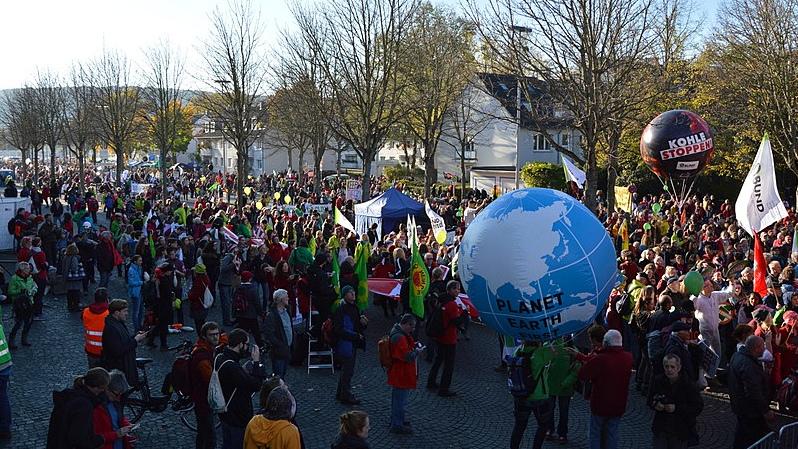In the past, COP meetings were events where climate protesters met with world leaders, made critical comments about them, and leaders tried hard to look good.
But many activists no longer have hope in high level lobbying of leaders. They have realized that the leaders don’t take much notice of what protesters say. Indeed, leaders have often used photo opportunities with climate activists to show the world how much they care.
For climate activists, most previous COP meetings have been big disappointments, with leaders failing to make any decisive progress on global warming. COP28 is likely to go the same way.
COP28 program
The official program for COP28 looks covers the usual range of issues. It contains promises of
- “innovative approaches to close the finance gaps”,
- a “focus on levers and pathways for rapid decarbonization”,
- recognizing the “needs of workers”,
- measures to “protect, restore and effectively manage natural ecosystems”
and other similar actions.
What is not promised is a real program that will bring about the rapid changes so desperately needed.
Expectations and hopes
The very fact that the meeting will be hosted by the United Arab Emirates, UAE, is a sign that there will be much posturing and greenwashing by polluters and greenhouse gas emitters at COP28. UAE has announced plans for carbon capture, painting itself is a responsible country, committed to fighting global warming. In reality, the amount of carbon that would be captured by the project is tiny. Moreover, and more importantly, the oil company whose CEO is the president of COP28, is planning major new oil projects that will spew huge amounts of CO2 into the atmosphere in the coming decades.
The past few decades have seen the fossil fuel industry playing an increasingly influential role in COP meetings, lobbbying hard to be allowed to continue their operations. The future of fossil fuel will be one of the major issues discussed at the conference.
Another contentious item will be the participants’ response to the “Global stocktake”. The stocktake is a report on how well the world has met commitments made in the past.
And then there will be the enduring arguments over finance, in which poorer countries have been pushing for more climate change funding from rich countries. A particular point of conflict has been a proposed “Loss and Damage” fund.
Global stocktake
The stocktake is a method that countries agreed to at the Paris conference in 2015 to assess global progress on mitigation and adaptation, and track the provision of climate finance the transfer of technology from rich to poor countries.
There are three phases: an information collection phase to gather inputs from all parties and non-parties, a technical assessment phase of these inputs and other evidence, and a “consideration of outputs” phase, for countries to decide what to collectively take away from the process.
The technical report showed that the world’s governments have failed miserably in their efforts to confront climate change. Instead of taking actions that will limit global warming to and average of 1.5°, the technical report warns that we are on course for warming well over 2°. Similarly, wealthy countries are way behind the targets for providing finance to poorer countries.
COP28 is the political forum in which the contents of the technical stocktake report will be considered. Will world leaders admit responsibility for the “gaps” (i.e. the lack of progress), and agree on how to close them? Going by the results of past COP meetings, this is unlikely.
Fossil fuels
In COP27 last year, there were serious disagreements about phasing out fossil fuels. Because of India’s strong protests, the meeting only agreed to the “phasing down” of fossil fuels. This would ensure continued fossil fuel emissions well into the next few decades.
It is blatantly obvious that fighting climate change means eliminating the burning of fossil fuels. Any plan that refers weakly to “phasing down” fossil fuels is simply not a serious one.
A few weeks before the start of COP28, US and China have recently held climate discussions. This itself is welcome news, since any major agreement on global action on the climate will require the support of both countries. But although the two countries were able to agree on several issues, such as methane, nitrous oxide and hydrofluorocarbons (HFCs), they were unable to agree that fossil fuels are the main drivers of climate change.
The refusal of countries to commit to phasing out of fossil fuels will be one of the most serious issues at COP28.
Finance
In 2009, rich countries agreed to provide (or “mobilize”) $100 billion each year for climate change mitigation and adaptation by 2023. In reality, much more than this is needed. One study by the Climate Policy Initiative gives an estimate of $4.3 trillion per year needed by 2030.
But although figures are hard to come by, it is clear that actual funding provided to poorer countries is much less than the $100 billion promised. Wealthy countries deflect demands for more direct funding by calling for an increase in private sector funding (which of course means loan finance).
The needs of the “global south” for more funding has been an enduring point of conflict at climate negotiations for decades.
Loss and Damage
Developing countries have increasingly been calling for “Loss and Damage” finance to pay for restoration and recovery from climate disasters. The issue is a difficult one, since measurement of what is “normal” and what is climate related is very complex. Developed countries have a fear that the funding will be used for non-climate related work.
After years of general statements of intent, governments have agreed in principle for a specific Loss and Damage funding mechanism. In June the UN hosted a meeting in Bonn at which the Loss and Damage fund was to be agreed on. But is was clear that developed countries didn’t want to agree to any specific targets, and would like to kick the can further down the road.
Another point of conflict is the choice of organization that will host the fund. The US has angered developing countries by insisting on the World Bank, which has a poor record of getting money to where it is needed.
The Bonn talks almost collapsed, and COP28 is now the deadline for agreement on how the fund will be set up and managed.
Economics and money
The lack of urgent action by world leaders on the climate is a huge source of frustration and anger for climate activists and many scientists. Leaders are accused of selfishness and of condemning future generations to a world with increasingly worse climate disasters.
While it is true that leaders are largely motivated by narrow, personal interests, and their support in their home countries, there is a deeper reason for their inertia. This is simply because capitalism and market economies are unable to respond to the climate emergence. The economist, Nicholas Stern, carried out a study to work out the global cost of climate change. He described climate change as “the greatest and widest-ranging market failure ever seen”. In other words, the market is unable to respond to the problem.
Like all market failures, this one is caused by corporations, governments and leaders responding to short term issues such as profits, electoral support and the narrow political and financial interest of elites. The wider interests of the future of humanity and the environment are always someone else’s problem.
Another major obstacle to effective climate action is how political governance works at the global level. Not only are almost all leaders tied by a thousand strings to capitalist and profit seeking organizations in their own countries. The are also divided between themselves by the interests of their particular countries and regions. This is clearly revealed by the negotiating blocks in the climate talks. Developed countries, undeveloped countries, fossil fuel exporters, fossil fuel burners all compete against each other. The block of small island states, which have the most to lose from climate change, is the only block that is driven primarily by climate concerns.
What needs to change?
An effective response to climate change will require a major turn away from market solutions. The markets will never raise the money needed. Huge amounts of finance will be required and huge taxes will have to be levied on corporations and the wealthy.
New institutions will be required. Individual countries will have to surrender much of their “national sovereignty”. The world will have to create institutions which can make decisions based on science and the long term interests of society and the environment. It is more than obvious that existing global organizations are not capable of doing this.
Demands around spending, taxes, science and institutions must be at the heart of activists’ protests. These are also the basis of transitional socialist demands. Not an immediate change of the world economic order, but demands around which socialist can organize and mobilize.


